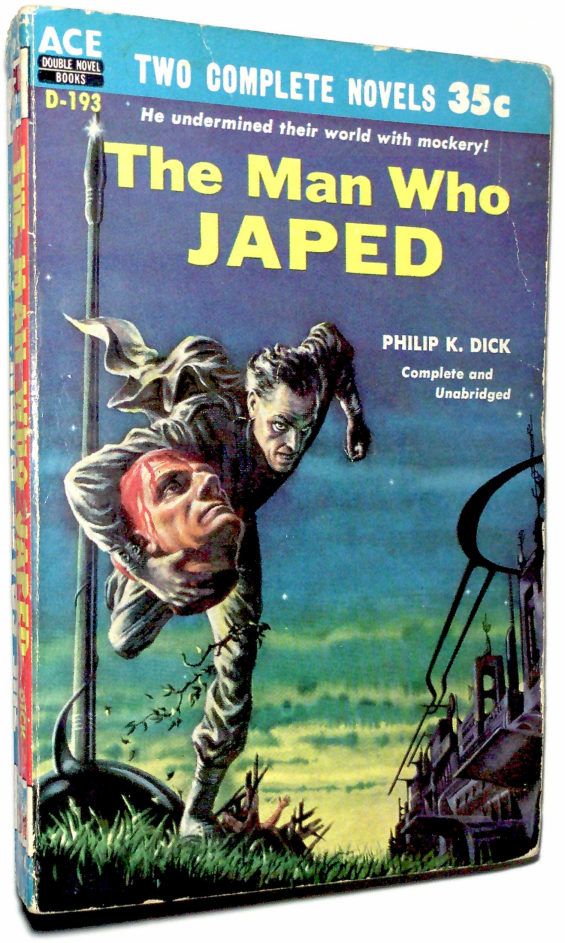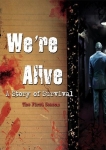
 The SFFaudio Podcast #177 – Jesse, Tamahome, Jenny, talk about the latest NEW RELEASES and RECENT ARRIVALS in audiobooks and paperbooks.
The SFFaudio Podcast #177 – Jesse, Tamahome, Jenny, talk about the latest NEW RELEASES and RECENT ARRIVALS in audiobooks and paperbooks.
Talked about on today’s show:
Jenny’s beagle Bailey loves audiobooks, breed vs. brand, “Space Drama”, The Prankster by James Polster (from Brilliance Audio), stranded on Earth, novellas, Luke Daniels is everywhere, Space Cadet by Robert A. Heinlein, Between Planets by Robert A. Heinlein (Full Cast Audio), Ace Tachyon (aka Abner Senries), Methuselah’s Children by Robert A. Heinlein, immortality, Universe by Robert A. Heinlein, “Future History”, 1941, “the guy with the two heads”, Lazarus Long, The Notebooks Of Lazurus Long, kilted spacemen, Fate of Worlds: Return from the Ringworld by Larry Niven and Edward M. Lerner (Blackstone Audio), Ringworld, “big dumb object” (and the blog of the same name), space elevator, Energized by Edward M. Lerner, a NASA engineer is the main character!, Grover Gardner, terpkristin, geopolitical intrigue, hard SF, Larry Niven and Gregory Benford “bowl-world?”, Dyson’s sphere, library of congress subject headings, Dewey Decimal Classification, Grover Cleveland, a librarian’s license, are librarians born or trained?, “on the square and on the level”, Trucker Ghost Stories edited by Annie Wilder (Macmillan Audio), Tavia Gilbert, Peter Ganim, 21st Century Dead: A Zombie Anthology edited by Christopher Golden (Blackstone Audio), Simon R. Green, Ken Bruen, Daniel H. Wilson, Brian Keene, zombies are taking over, The Walking Dead (comic), Locke & Key, Joe Hill, Stephen King, “gears and robots” or “steamy robots”, Clockwork Angels: The Novel by Kevin J. Anderson, Neil Peart (of Rush), steampunk, steampunk music?, The Steampunk Bible edited by Jeff Vandermeer, Mr Jupitus In The Age Of Steampunk, maker stuff with tophats, is there a good steampunk book to wow Tam?, Murdoch Mysteries, Tesla vs Edison, steampunky, 1950s kitchen appliances, golden age SF, Boneshaker by Cherie Priest, Sword & Laser, VN by Madeline Ashby, Von Neumann machine, “she stopped being able to not harm humans”, gynoid vs. android, a girlnoid, guynoid vs. gynoid, Angry Robot, Saturn’s Children by Charles Stross |READ OUR REVIEW|, Exhalation by Ted Chiang, non-human main characters, Cloud Atlas by David Mitchell, post-apocalyptic Hawaii, “a hard entry point”, The Curious Incident Of The Dog In The Nighttime, fantastical, “fantasy noir”, “a noir cannot be series”, “investigative fantasy” or “hardboiled fantasy?”, darker than you think by Jack Williamson (Blackstone Audio), Jim Meskimen, embroiled in hardboiled?, The Humanoids, With Folded Hands, setee vs. seetee, Technomancer (Unspeakable Things: Book 1) by B.V. Larson (Brilliance Audio), space-kilt!, Red Planet by Robert A. Heinlein, naked on a frozen planet, Saint City Sinners by Lilith Saintcrow, Tanya Eby, Battle Royale by Koushun Takami, Morning Glories (comic), Midnight (Nightingale Trilogy: #2) by Stephen Leather, Ralph Lister, “supernatural noir”, hardboiled vs. noir, Philip Marlowe is hardboiled (perhaps with noir elements), Kiss Me Deadly by Mickey Spillane, noir as a visual vs. noir as a story, Hamlet, noir stories don’t need detectives (and usually don’t have them), femme fatale, James M. Cain, Body Heat, Chinatown, “it’s chinatown Jake” = things are so fucked up you should walk away, “kitty kat”, “fantasy adventure”, Wake of the Bloody Angel: An Eddie LaCrosse Novel by Alex Bledsoe, pirates!, Stefan Rudnicki, The Hammer And the Blade by Paul S. Kemp, Nick Podehl, Functional Nerds, Fritz Leiber’s Fafhrd and the Gray Mouser, the trouble with fish-gods, a buddy movie (book), dragons, Sky Dragons (Dragonriders of Pern) by Anne McCaffrey and Todd McCaffrey, Emily Durante, Brilliance Audio, Blood of the Emperor (The Annals of Drakis: Book Three) by Tracy Hickman, Margaret Weis, PKD!, Counter Clock World by Philip K. Dick, Gather Yourselves Together by Philip K. Dick (mainstream PKD) <-published posthumously, Eye In The Sky by Philip K. Dick, Dan John Miller (Brilliance Audio), The Zap Gun by Philip K. Dick (Brilliance Audio) <-an expansion of The Gun Project Plowshare, Mel Foster, Anthony Boucher liked it, The Man Who Japed by Philip K. Dick (Brilliance Audio), Repent Harlequin Said The Ticktock-man by Harlan Ellison, Dick was a crazy autodidact, didacticism, A World Of Talent and Other Stories (Eloquent Voice), Total Recall (aka We Can Remember It For You Wholesale), public domain Philip K. Dick stories, a strange dedication, Geek’s Guide To The Galaxy, John Joseph Adams, The Reel Stuff edited by Brian Thomsen and Martin H. Greenberg, Mimic by Donald A. Wollheim, the Total Recall remake is terrible and stupid, Inception, are “sci-fi” movies are opera for Americans?, Air Raid by John Varley, Loopers, time travel, many new Stanisław Lem audiobooks are up on Audible.com!, Lem READALONG!, Tam is always “Lemming”, Lemistry: A Celebration of the Work of Stanisław Lem, Eric S. Rabkin, Cyberiad, Luke Burrage’s review of Solaris, Noise: A Novel by Darin Bradley, Chris Patton, dystopias are refreshing, The Hunger Games by Suzanne Collins, Spider Robinson, The Road by Cormac McCarthy, Jesse is completely wrong, does a lack of engagement with the society in The Hunger Games make it not really SF?, science fictiony vs. Science Fiction, 1984, an ever evolving book of rules about idea fiction, Arguably: Essays by Christopher Hitchens, George MacDonald Fraser’s Flashman, The New York Review Of Books, arguing with books, Jenny’s favourite part of the NYRoB, the New York Review Of Books blog, academic writing vs. literary writing, Vanity Fair and Vanity Fair online, Simon Prebble has captured Chrisopher Hitchen’s voice, Jo Walton, the Booker Prize longlist, Bring Up The Bodies by Hilary Mantel (historical fiction), history, I, Claudius by Robert Graves, fictionalized history vs. historical fiction, Luke Burrage’s review of Wool by Hugh Howey, Jenny makes friends with all the authors.

Posted by Jesse Willis


















